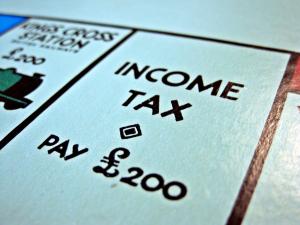General Tax Tips for the Self-Employed
It's getting close to that wonderful season again. Yes, tax season. Ugh. Unless you're a CPA or secretly love to read the IRS tax code, you probably don't look forward to tax season, particularly if you're self-employed. However, if you know a few things about taxes, the season doesn't have to be all gloom and doom. The following are a few general things to keep in mind about self-employment and taxes, courtesy of the IRS.
How the IRS Defines Self-Employment
Self-Employment is any work that you complete which brings in income. This means that you can be both employed and self-employed at the same time, like if you have a regular job and do freelance work from home. This also applies to other side gigs that may not seem as obvious at first glance, like websites that draw income, garage sales that are held on a regular basis, and sales of crafts.
Paying Your Own Taxes
When you own your own business, you write your own paychecks. So you, as the boss, are responsible for deducting the tax withholding and for sending in the tax payments. Since most businesses pay taxes on a quarterly basis, the IRS advises small business owners and self-employed people to do the same. These may be filed through EFTPS.
The taxes you have to keep in mind are social security and Medicare tax, which together make up the Self-Employment Tax. To figure out how much you owe, you should use a Form 1040 schedule SE.
Cashing in on Deductions
Your business is just like any other business: you have business expenses that you can deduct from your taxes. Standard costs can include rental costs for a dedicated space outside the home; (or, if a home office), the portion of your mortgage that pays for your home office; heating, cooling and electrical costs for your office; business supplies; and website, business cards, and other advertising expenses. Many more costs can be deducted as long as they are both ordinary and necessary.
When you have a home office, you can figure your costs for heating, cooling, electricity and workspace by using a little math. First, you must figure out what percentage of your home is dedicated solely to your home office. To accomplish this, simply measure the space, calculate the square footage, and divide it into the total square footage of your home. This figure can then be used to determine what amount of your mortgage or rent can be deducted as a business expense. It can also be applied to your heating, cooling and electrical bills.
Taxes may seem boring and scary at the same time, but they don't have to be. With a little know-how and research, you can tackle self-employment taxes.
- Login to post comments
-







retirebyforty wrote:
Thu, 01/26/2012 - 20:40 Comment #: 1I didn't send in any withholding in 2011 because I didn't think I would make much money online. We'll see how it goes in April, but I'm pretty sure we owe the IRS a pretty sum this year. I'll make sure to send in my withholding this year. Ugh... I hate tax time.
Little House wrote:
Fri, 01/27/2012 - 14:42 Comment #: 2I am not looking forward to taxes this year. I made a huge mistake on our 2009 taxes and it is now costing us a large amount. This year, I think I'm going to get the help of an accountant. I don't want to get audited!
Christa Palm wrote:
Sun, 01/29/2012 - 19:37 Comment #: 3RB40, I hope all goes well with you, since you didn't send in any withholdings.
LH, I made a mistake one year on my taxes -- I know that can be surprising and expensive. Ugh.